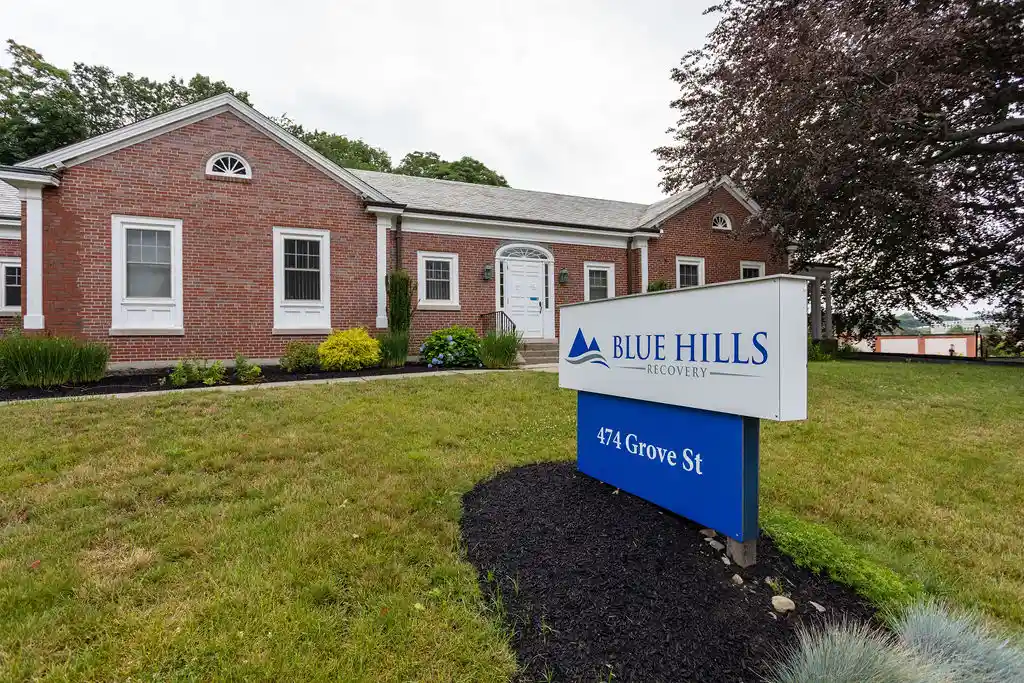

Are you or a loved one struggling with an eating disorder and searching for the best treatment? Look no further. We have thoroughly researched and compiled a list of the top eating disorder treatment centers across North America. In this blog post, you will learn about the various treatment options and be introduced to some of the most renowned facilities dedicated to helping you achieve full recovery. Your journey towards healing starts here.
Selecting the right eating disorder center is an essential part of achieving recovery and fostering overall wellbeing. A whole-person approach in eating disorder treatment provides a unique opportunity to heal the mind, body, and spirit through tailored programs that include psychological counseling, psychotherapy, medical care, nutritional therapy, and relapse prevention, as well as holistic treatment therapies such as yoga, meditation, art therapy, equine therapy, and life skills training. Having support from experienced professionals is crucial for successful treatment of eating disorders.No one should go through this journey alone.
Inpatient hospitalization, residential treatment, and outpatient programs provide comprehensive care for eating disorder treatment. Each level of care offers unique benefits and services to cater to individual needs. Let’s take a closer look at each of these treatment options.

Inpatient hospitalization is an important type of medical treatment that requires a patient to be admitted to a hospital or other care facility for at least one night. This level of care provides a safe and secure environment for individuals with eating disorders to receive intensive, beneficial treatment and monitoring, with access to a variety of highly skilled medical and mental health professionals, as well as invaluable support from peers. The potential rewards of inpatient hospitalization include the opportunity for medical care and support, the chance to connect with other patients with eating disorders, and the possibility of feeling supported by family and friends.
However, it is crucial to consider the cost of inpatient hospitalization, as it can vary depending on the type of facility and the length of stay. Generally, inpatient hospitalization is more expensive than outpatient treatment, so it is important to carefully weigh the benefits and costs associated with this level of care.
Residential treatment is an incredibly effective and intensive form of treatment for eating disorders that involves living in a specialized facility for a period of time. These centers can help individuals with all types of eating disorders, as well as co-occurring psychological disorders such as depression, anxiety, bipolar disorder, obsessive-compulsive disorder, dissociative identity disorder, and post-traumatic stress disorder.
Residential treatment centers offer empowering modalities, including individual and family psychotherapy, behavioral techniques, and experiential therapies, all designed to help patients reach their recovery goals. This level of care provides a structured environment that fosters healing and growth.
By removing individuals from their everyday life, residential treatment allows them to focus solely on recovery and develop healthy coping mechanisms. It also offers the opportunity for patients to form strong connections and support networks with others going through similar struggles, aiding in lasting recovery.
Outpatient programs for eating disorders are an empowering treatment option that involves regular appointments with a supportive therapist or treatment team, but do not require patients to stay overnight in a hospital or residential facility. These programs can provide treatment for anorexia, bulimia, and other eating disorders, offering the flexibility to continue with daily life while receiving the necessary support for recovery. With more than ten Eating Recovery Centers across the US, you are sure to find the right one for you.
These programs may include individual therapy, group therapy, family therapy, and other support services, such as nutritional counseling and medication management. Outpatient programs can be an excellent option for those who have completed a higher level of care, such as inpatient hospitalization or residential treatment, and are transitioning to a less intensive form of support.

On the West Coast, there are several exceptional eating disorder treatment centers that have gained recognition for their innovative approaches to care. Dr. Anita Johnston’s ‘Ai Pono program in Hawaii uses a spiritual, storytelling approach for women’s eating disorder recovery, while the Center for Discovery in California provides a customized treatment plan and exposure-based programs.
Let’s take a closer look at these top West Coast treatment centers.
‘Ai Pono Maui, a residential treatment center in Hawaii, offers a spiritual approach to eating disorder treatment that embraces nature and trauma-informed care. The holistic approach to treatment encourages nurturing the whole person, including physical, mental, emotional, and spiritual aspects, through activities like yoga, meditation, and nature walks to help individuals feel empowered and in control of their own health.
The trauma-informed care approach is an invaluable tool in addressing the traumatic experiences that may have contributed to the eating disorder, providing a safe and supportive environment for individuals to heal and move forward.
Dr. Anita Johnston, a renowned eating disorder expert, has developed a spiritual storytelling approach to treatment that encourages individuals to uncover the meaning in their experiences. Through this unique approach, patients can gain a deeper understanding of their eating disorder and its underlying causes, fostering a sense of empowerment and self-compassion.
California is home to many specialized eating disorder treatment centers that provide personalized and individualized care for those seeking help. One such center, the Center for Discovery, tailors its approach to meet each patient’s individual needs and includes exposure-based programs to help individuals on their journey to recovery.
Patients can explore various approaches to eating disorder treatment in California, such as cognitive-behavioral therapy, dialectical behavior therapy, family-based therapy, and nutritional counseling. These customized treatment plans allow patients to receive the specific support and services needed to address their unique challenges and symptoms.
By offering a range of therapies and approaches, California’s customized care ensures that individuals can find the help they need to overcome their eating disorder and achieve lasting recovery.
On the East Coast, there are several prominent eating disorder treatment centers offering comprehensive, integrative services and personalized medical and psychiatric approaches. New York’s BALANCE Center and Florida’s Oliver-Pyatt Center both provide a range of services and therapies to help clients manage eating disorder symptoms, develop a healthy relationship with food, and move towards self-acceptance and mindful eating.
Let’s explore these leading East Coast treatment centers in more detail.

New York City’s BALANCE. Center is a premier outpatient eating disorder treatment center that offers an innovative approach to treatment, incorporating relational psychotherapy, behavioral therapies (CBT, DBT), and expressive therapies (art, drama & movement). They offer programs to assist clients in alleviating their eating disorder symptoms. Additionally, these programs work to enhance self-esteem and promote a healthy relationship with food.
In addition to individual psychotherapy and behavioral therapies, the Balance Center incorporates experiential therapies, yoga, and creative expression into its programs, making it a truly unique and inspiring place to seek recovery. With a focus on the whole person and a supportive environment, the Balance Center provides the tools and resources necessary for individuals to overcome their eating disorders and live a healthier, happier life.
The Oliver-Pyatt Center in Florida provides comprehensive treatment for eating disorders, including residential, day treatment, and supervised transitional living. Specializing in all major disorders such as anorexia nervosa, binge eating disorder, and bulimia, the center offers an individualized medical and psychiatric approach that is tailored to each individual’s needs and encourages family members to be involved in the recovery journey, from orientation to weekly therapy sessions to on-site visits.
Oliver-Pyatt provides four levels of care: residential, partial hospitalization, intensive outpatient and transitional. It caters to women with various eating disorders and exercise addiction issues, helping them overcome these difficulties. The comprehensive approach, personalized treatment plans, and dedicated team of professionals make the Oliver-Pyatt Center an excellent choice for those seeking recovery on the East Coast.

The Midwest is home to two exceptional eating disorder treatment centers that offer tailored recovery services for all ages and types of disorders, as well as co-occurring psychological disorders, trauma-informed care, and comprehensive services. Arizona’s trauma-informed care and Illinois’ comprehensive services provide a range of options for individuals seeking recovery from eating disorders in the Midwest.
Let’s delve deeper into these centers.
Arizona’s trauma-informed care is a powerful form of treatment that can help individuals gain insight into and address the traumatic experiences that may have contributed to their eating disorder. This approach emphasizes the importance of healing from trauma as a necessary part of recovery, making it a valuable tool for individuals struggling with eating disorders.
The Meadows, a renowned treatment center in Arizona, offers incredible treatment for addiction, depression, eating disorders, and PTSD. Utilizing a trauma-informed care approach, The Meadows provides a supportive and compassionate environment for individuals to heal from their past traumas and begin their journey towards recovery.
Illinois offers an incredible array of services for individuals with eating disorders, including inpatient hospitalization, residential treatment, and outpatient programs. These comprehensive services provide specialized care, personalized treatment plans, and support from a multidisciplinary team of professionals.
The advantages of receiving treatment in Illinois include access to evidence-based care, the development of personalized treatment plans, and the support of a dedicated team of professionals. With a wide range of services and treatment options available, individuals seeking recovery from eating disorders in the Midwest can find the help they need in Illinois.

In Canada, Edgewood Health Network uses cognitive and dialectical behavioral therapies with yoga and mindful wellness treatments in their inpatient campuses and outpatient clinics across the country.
Kyla. Fox’s outpatient center in Toronto offers personalized and holistic healing that includes art therapy, yoga, acupuncture, Reiki, and clinical therapy to treat eating disorders in children and adults.
Let’s explore these Canadian treatment centers further.
Edgewood Health Network is an inspiring network of recovery centers that offer evidence-based mental health and addiction treatment across Canada and Seattle. They provide comprehensive full-spectrum care devoted to achieving the best outcomes, and delivered by knowledgeable medical experts. With locations in Canada and Seattle, Edgewood Health Network is conveniently accessible for those seeking treatment.
Their services include individual and group therapy, medication management, nutrition counseling, and family therapy, providing the support needed for individuals on their journey to wellness. By relying on Edgewood Health Network, patients can access evidence-based treatment, full-spectrum care, and medical experts to help them reach their health goals.
Kyla Fox’s Outpatient Center in Toronto is an inspiring outpatient treatment center for women that provides holistic eating disorder treatment and Telehealth. Kyla. Fox, a passionate licensed social worker who founded the center in 2012, bravely overcame anorexia and exercise addiction before dedicating her life to helping others recover from eating disorders.
At Kyla Fox’s outpatient center, they strive to provide a personalized experience for each client, focusing on individualized recovery work with doctors, therapists, and nutritionists, rather than a group setting. They take into account all life factors to develop a tailored plan that includes holistic healing techniques such as art therapy, yoga, acupuncture, and Reiki, as well as clinical therapy.
This personalized and holistic approach to treatment ensures that individuals can find the help they need to overcome their eating disorders and achieve lasting recovery.

Accreditation and insurance considerations are vital when selecting eating disorder treatment centers. It is essential to ensure that the center meets specific standards of care and safety, which can be invaluable for patients and their families.
Insurance coverage plays a crucial role in determining the affordability and accessibility of treatment options. Let’s discuss these considerations in more detail.
Accreditation is incredibly important for eating disorder treatment centers, as it guarantees that the center meets certain standards of care and safety. This can provide patients and their families with confidence in the quality of care provided.
JCAHO accreditation is widely regarded as a sign of excellent and quality care and demonstrates that the center has met specific criteria and gone through an evaluation process. Ensuring that the treatment center is licensed and accredited in all areas they are providing treatment for is essential, as it guarantees that the treatment is of the highest quality and meets all safety standards.
Most insurance policies, including private insurance, Medicaid, and Medicare, can provide support for eating disorder treatment. Understanding the coverage limits of your insurance plan is essential to ensure you have the protection you need. Reach out to your insurance provider to learn more about what is covered.
Many treatment centers, such as Rosewood Centers, accept a wide range of providers, including Aetna, Cigna, Optum, Blue Cross Blue Shield, Beacon Health Options, First Health Network, Magellan, MultiPlan, Kaiser, United Healthcare, and more. Being aware of insurance coverage options can significantly impact the affordability and accessibility of treatment for eating disorders.
In conclusion, finding the best eating disorder treatment center is a crucial step in the journey towards recovery. With various treatment options and top centers across North America, individuals seeking help can find the support they need, tailored to their unique needs and circumstances. By considering factors such as accreditation and insurance coverage, individuals and their families can ensure they receive the highest quality care in their pursuit of healing and lasting recovery. Remember, the journey to overcoming an eating disorder may be challenging, but with the right treatment center and support, a healthier, happier life is within reach.
Bulimia Nervosa. Although bulimia nervosa is a serious illness with severe consequences, anorexia nervosa is considered to be the most dangerous of all eating disorders due to its high mortality rate.
It is estimated that up to 10% of people with anorexia nervosa will die from the disease.
Coping with anorexia nervosa can be a difficult, but ultimately achievable task. To start, it is important to take small steps towards healthy eating habits, seek support from family and friends, focus on positive body image, and, if necessary, seek professional help.
With consistent effort and self-care, it is possible to overcome this difficult condition.